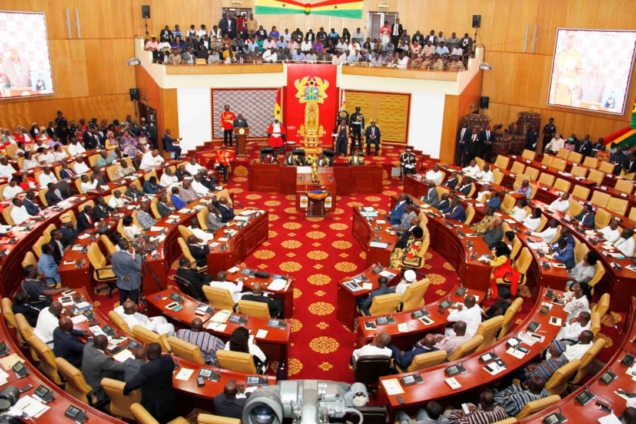Members of Parliament are unable to agree over a report presented by the Constitutional, Legal, and Parliamentary Affairs Committee that seeks to amend some parts of the Criminal Offences Act.
The proposed amendment bill will substitute the death penalty with life imprisonment.
Ghana’s death penalty was inherited from the colonial administration as a punishment for murder, attempted murder, genocide, piracy, and smuggling of gold or diamonds, however, since 1993, no president has signed a death warrant for the execution of offenders.
During a discussion of the amendment bill, the legislators raised varying opinions on the abolishment of the death penalty.
Read also: It’s time for Ghana to enshrine its respect for right to life – by abolishing death penalty
MP for Zebilla, Cletus Avoka said that the arguments raised in favour of the motion were insubstantial.
“I first submit that the arguments they have advanced in terms of the motion are very scary and have no measures at all. Arguments in favour of the motion are unmeritorious”, he said.
But the MP for Madina and an advocate for the amendment, Francis-Xavier Sosu contended that “since the attainment of independence in 1957, Ghana has executed 49 persons either by firing squad or by hanging and most of those executions mainly happened during military regimes.”
He further emphasised that “The current position of Ghana is that we are abolitionists in practice. This is so because since 1993 to date, Ghana has not signed a death warrant to execute anyone and that is very commendable.”
The Builsa North MP, James Agalga, and Second Deputy Majority Whip, Habib Iddrisu also pointed out a correction that “we cannot count universal declaration on human rights a part of our treaty obligations with the greatest of respect. The universal declarations on human rights are declarations, they are non-binding, and so they do not qualify for a treaty.”
Latest Stories
-
5 dead, over 14 injured in gory accident near Obuasi
23 mins -
Cleaner to stand trial over Cashier’s death at Twumasiwaa Hospital
42 mins -
Global financial institutions call for comprehensive treaty to end plastic pollution
53 mins -
Electoral processes, ethnoreligious cleavages threats to Ghana’s 2024 election – WANEP
54 mins -
Harnessing intuition, reasoning, and memory to navigate the AI age
1 hour -
Azumah Nelson Sports Complex: Gov’t advised to terminate project contract
2 hours -
Dumsor will be a thing of the past soon – Bawumia assures
2 hours -
Why do you always run to the media? – EC quizzes IMANI
2 hours -
Francis Doku charges government to market traditional festivals
2 hours -
Ghana records an average of 9,900 snakebites annually
2 hours -
Fella Makafui sets record straight on relationship with D-Black
2 hours -
CEGENSA celebrates mentors for nurturing UG’s upcoming female leaders in academia
2 hours -
Dr. Bawumia begins Eastern regional tour with religious leaders in Akropong
2 hours -
Akosombo Dam Spillage: Would victims have been ignored if they were in swing constituencies – Ablakwa fumes
2 hours -
Have capacity to influence policy – former MiDA boss to engineers
2 hours

